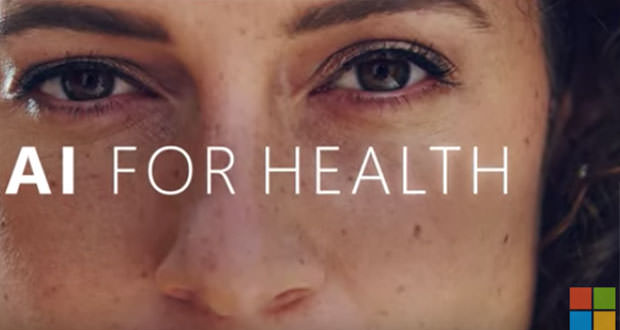Microsoft AI For Health, the program to face the most complex healthcare challenges
Microsoft announces AI for Health, a $40 million investment for a 5-year program designed to improve the health of communities around the world by leveraging artificial intelligence.
Microsoft unveiled a new global program as part of the AI for Good: AI for Health project. A $40 million investment in AI-based tools aimed at improving people’s health conditions around the world. As part of the program, Microsoft will collaborate with non-profit organizations, universities, and research institutes, offering them technologies and resources to speed up research in the medical health field.
” With artificial intelligence, we have the opportunity to solve some of humanity’s biggest problems ” – commented Brad Smith, President of Microsoft – ” Improving the health conditions of communities around the world is certainly one of them. The ability to use such a powerful tool as AI for experts who face these types of challenges every day can certainly speed up the creation of new solutions and improve access to care for the most disadvantaged populations. AI for Health goal. ”
Microsoft AI for Health – the focus is on three areas
The AI for Health program will focus on three themes: research, data, and fair health.
Through research (Quest for Discovery), Microsoft aims to improve all activities related to disease prevention, diagnosis, and treatment. In contrast, data (Global Health Insights) will improve the knowledge and shared understanding of mortality and longevity to protect us from global health crises.
The last area (Health Equity), is focused on reducing medical and health inequalities and improving access to care among disadvantaged populations.
Among the issues that will be addressed with greater urgency, Microsoft indicates the syndrome of cradle death, leprosy, detecting diabetic retinopathy to prevent blindness, and build an ecosystem that allows the safe sharing of biomedical data.
Among the first partners of the AI for Health program, we mention BRAC, Fred Hutchinson Cancer Research Center, Intelligent Retinal Imaging Systems (IRIS), Novartis Foundation, PATH, and the Seattle Children’s Research Institute.
” Recent collaborations with the Microsoft Data Science team have already shown how AI can improve the quality of research by helping us find important answers on respiratory diseases and causes of infant mortality, such as cradle death syndrome. We are excited to this opportunity and to continue our work together, combining talent and cutting-edge IT tools that have the power to revolutionize the sector and save lives,” said Dr. Nino Ramirez, Seattle Director of the Center for Integrative Brain Research Children’s Research Institute.

